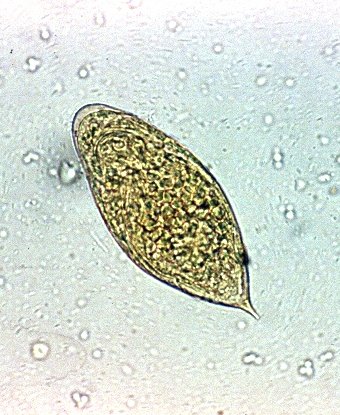Bilharzia (Schistosomiasis) Microscopy, Urine
Urine microscopy is a diagnostic test used to detect the presence of Schistosoma haematobium eggs in the urine, which is the definitive diagnosis of urinary schistosomiasis. The test involves examining a urine specimen under a microscope to identify the eggs of the parasite. The density of eggs in urine varies throughout the day, with the highest concentration between 10 am and 2 pm. Therefore, it is preferable to obtain a urine sample collected over this time period or terminal stream urine collected over a whole 24-hour period.

Indications of the Test
The test is indicated for individuals with symptoms of urogenital schistosomiasis, such as blood in the urine (haematuria), and those who have travelled to or live in areas where schistosomiasis is endemic[3]. In Kenya, Schistosomiasis is common in the Eastern counties of Makueni, Machakos, Kitui, parts of Kirinyaga and coastal areas.
Patient Preparation/Instructions
Patients should be instructed to provide a urine sample collected between 10 am and 2 pm or a terminal stream urine over a 24-hour period. It is important to clearly state “Schistosoma Microscopy” on the request and include details of foreign travel when submitting the sample[3].
Typical Reference Values
The test result is considered positive if Schistosoma haematobium eggs are detected in the urine specimen. A negative result indicates the absence of the parasite’s eggs.
Turnaround Time
The turnaround time for this test is typically 24-48 hours.
Order This Test
You can order this test by clicking the “Order Test” button and adding it to your cart. Ensure that you provide the necessary details, such as the collection time of the urine sample and any relevant travel history, when placing your order.
Citations:
[1] Other Specimens – Urine Specimens https://www.cdc.gov/dpdx/diagnosticprocedures/other/urine.html
[2] Evaluating diagnostic indicators of urogenital Schistosoma haematobium infection in young women: A cross sectional study in rural South Africa https://www.ncbi.nlm.nih.gov/pmc/articles/PMC5815575/
[3] Exeter Clinical Laboratory International https://www.exeterlaboratory.com/microbiology/schistosoma-urine-microscopy/
[4] Schistosomiasis https://www.who.int/news-room/fact-sheets/detail/schistosomiasis
[5] Tools for Detection of Schistosomiasis in Resource Limited Settings https://www.ncbi.nlm.nih.gov/pmc/articles/PMC6024580/

